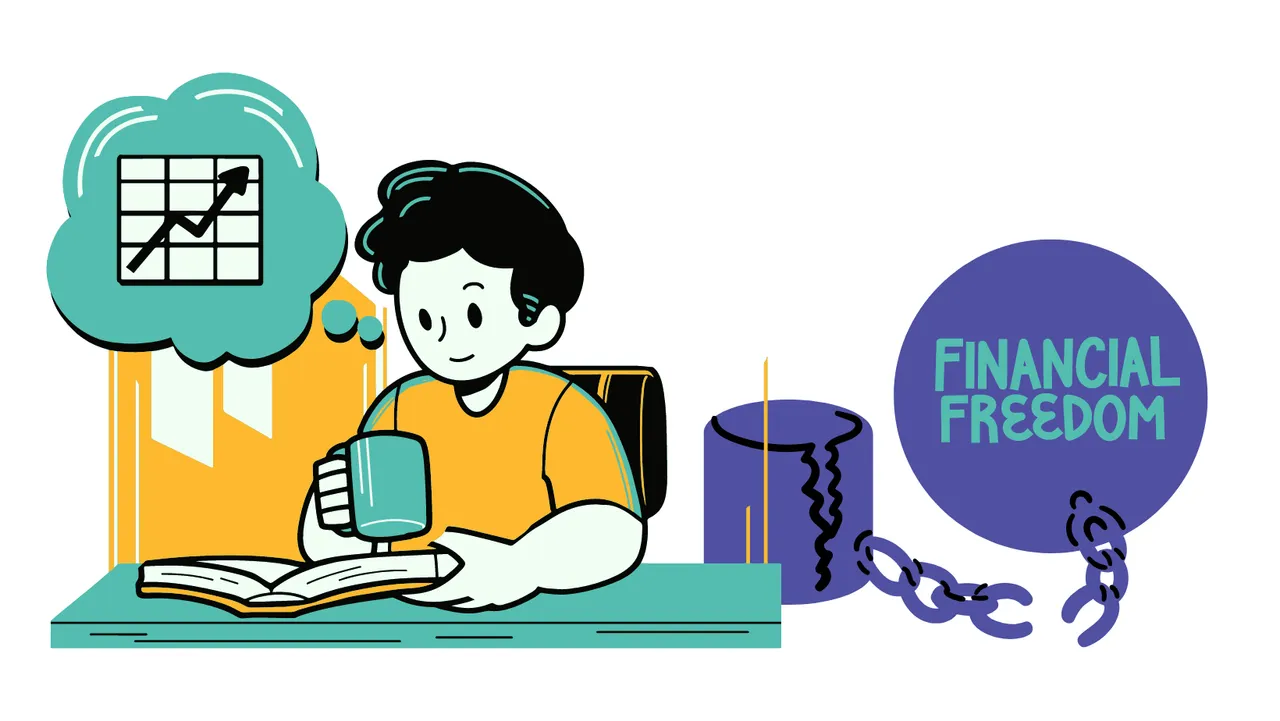A friend confided in me. A few weeks ago, he was drafting his plans for the first quarter of this year. As he sat scribbling down important investment opportunities to read up on, he remembered how, four years ago, he was broke.

Source
He was so broke that he couldn't afford a data subscription on his device then. He scurried every account he had for money to recharge #100; perhaps he'll get a data bonus with that. It was that bad.
It wasn't always that bad. He remembered that in 2020, he had spent the whole lockdown learning how to trade the forex market. He was learning with a demo account and seemed to be progressing considerably. All was well and good, so he decided to take the big leap and start live trading. He felt he was doing so well to start, and it was time to monetize this.
Interestingly, this worked for a while as XAUUSD (Gold) was on an upward trend during the lockdown. He made quite some cash and decided he could do this full-time. Sadly, his little show came crashing down when gold took a downward turn. It was aggravating for him as he forgot to set a stop loss. He ended up blowing his account.
As forex stopped being the way, he decided to take writing more seriously, so he set up his Upwork account and became vocal about his service. He got connections to several brands, and he seemed to be making progress. However, he realized that, even though he was making money, it wasn't reflected in his finances. His bills increased alongside his income.
As he started to ponder on this, he decided to make a quick fix by trying to make more money. He thought if he made more money, then it didn't matter how many bills he had to settle; he'd pay it off without batting an eye. Little did he know that his thoughts on the matter were skewed. He found out that the more he earned, the more bills he had to pay. This merry-go-round continued until he stumbled on a book about financial literacy and freedom.
The concept of financial freedom was really easy to grasp. It is formed around having control over your finances. The post opened his eyes to the possibilities available to him if he could find a structure around his finances. So, he delved deeper and read even more articles, books, and blog posts across the internet. With more research, he found loopholes in his spending patterns and how he could salvage it for the better.
He began by drafting out all of his expenses. It was a really long list, but it was worth the time. He highlighted the expenses in order of priority and decided to let go of some supposed luxury that he could do without. He also created a different list of how and where he got money from. So, he documented ongoing contracts with clients, as well as gifts he got from friends and families.
After settling this, he decided to budget and allocate how his monthly money would be spent. He had to be completely honest with himself about things he needed and things he wanted. He convinced himself that human wants are insatiable, but our needs are definite if we are honest. So, he focused more on settling needs rather than wants. He then created a budget that accommodated this. He made sure to budget for miscellaneous (impromptu) spending, gifts to friends and families, occasional self-gratification, possible investment opportunities, etc.
After two months, he soon realized drafting the budget was the easy part; following through with it is where work started. So he corrected his earlier mistakes and decided to be stricter with his adherence to the budget. The result? There was a massive change in his spending pattern, and he had more money. He realized he wasn't broke; he just spent his money anyhow. Since he saw this light, he followed through with budgeting and adherence to the budget till this moment, and he's really glad he did.
In the words of Robert Kiyosaki,
Financial freedom is available to anyone willing to learn and work for it. Robert Kiyosaki
If we are not actively learning about our finances and learning to pay ourselves first, we will constantly find our purses empty. The necessities of life will always be vying for our money but knowing where to draw the line when it comes to unnecessary expenses will give our purses a boost moving forward.
More from iska
AI and robotics will create more jobs than they replace
Greenwashing – The deceptive business tactics we should have zero tolerance for
Good health inspires creativity, innovation, & productivity
When it comes to money - self-sabotage is a thing
Procrastination - An investment in stress for your future
Financial desperation can ruin you
Marriage in the high society - a dangerous business
Those who fall for Ponzi Schemes are driven by greed, desperation, & a lack of planning
The paradoxical nature of risks - The upside is directly proportional to the downside
Technology - prioritizing vision over quick profits led to the creation of iconic innovations